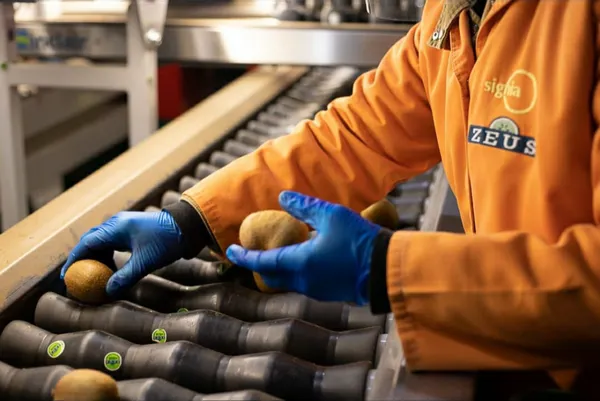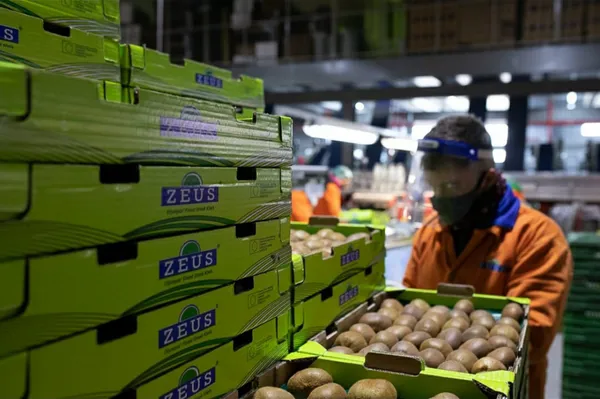The Greek kiwis will have smaller sizes this season compared to the previous season, says Zeus' Marketing Sales Director Christina Manossis: “Our kiwi harvest is still in progress. The grapes season is also still going, so we’re having to divide our attention between the two products. For kiwis, we’ve seen lower sizing in every part of Greece due to pollination and weather conditions. Volumes are similar, maybe slightly lower than the previous season. But if there’s less volume, it would be by 5 per cent at the maximum. When speaking on the weather conditions, the extreme heat was a factor for the smaller sizes, but pollination was definitely a larger factor, we believe.”
It's a ‘pricing war’ on the market at the moment, which means Zeus would rather not get involved. Manossis states they’d rather wait for the situation to calm down a bit. “Demand is very high at this point in time, but we’re in no rush to get into the sales. There’s currently competition when it comes to pricing and we’d rather stay out of it and sell our kiwis a bit later. We do serve markets that are willing to pay for the constant quality that Zeus offers. Currently we’re shipping towards the UK markets, while slowly expanding the markets in the coming weeks.”

A new market is emerging for the Greek kiwi growers and exporters, as they could soon be licensed to export to the Brazilian market, Manossis explains: “Important news is the fact that the Brazilian market is now open to Greek kiwis. We’ll be licensed soon, as on November the 24th, a Brazilian delegation will visit Greek kiwi orchards to inspect and approve the operation going forward. It will take a little while, but we have hopes that we’ll be able to ship to Brazil within a month or two. Brazil could definitely be a very interesting market for Zeus.”
Zeus takes pride in the fact they’re completely open about their emissions, while trying to offset them as much as possible. “As Zeus, we’ve documented and researched the CO2 emissions in every part of the kiwi exporting process. Starting from growing in the orchards, in terms of fertilizer as well, up until the packaging and final shipping. This way we can try to offset our CO2 emissions to make our operation as sustainable as possible. This has been documented in the ‘Second Product Life Cycle Assessment’. We were the first company to openly declare our CO2 emissions in 2012, next to Zespri there are still very few companies that do that.”

Manossis says that Zeus intends to release a similar assessment for their grape production: “As we currently have the know-how on how to document the Co2 emissions during the process, our intention is to publish a similar assessment for grape cultivation as well. We feel it should be available for all products. It makes it completely transparent for buyers. As Zeus we have completely minimized the emission in the stage of actual production. So there is nothing to gain in this part of the process anymore. However, we’re looking at how to reduce or offset our emissions in the other parts of the operation.”
“For example, we intend to have even more renewable energy produced for our packhouse. At the moment, 30% of our energy is clean energy, produced by solar panels. By 2024 our goal is to have 60% of our energy come from clean origins.” Manossis concludes.
For more information:
Christina Manossis
Zeus Kiwi SA
Tel. +30 2351 053559
Dir. Line +30 2351 045395
Email: [email protected]
www.zeuskiwi.gr
